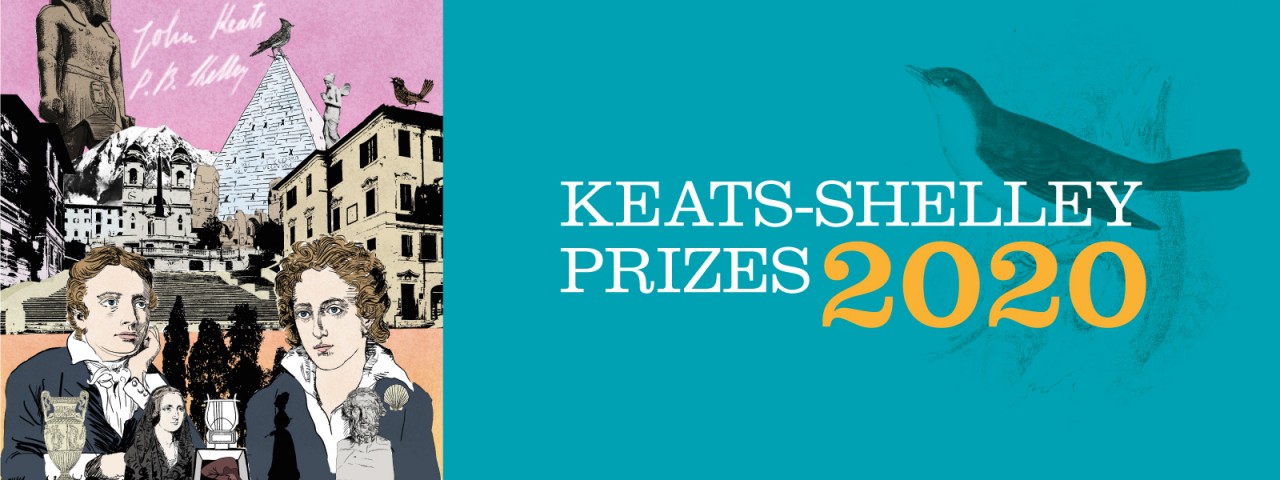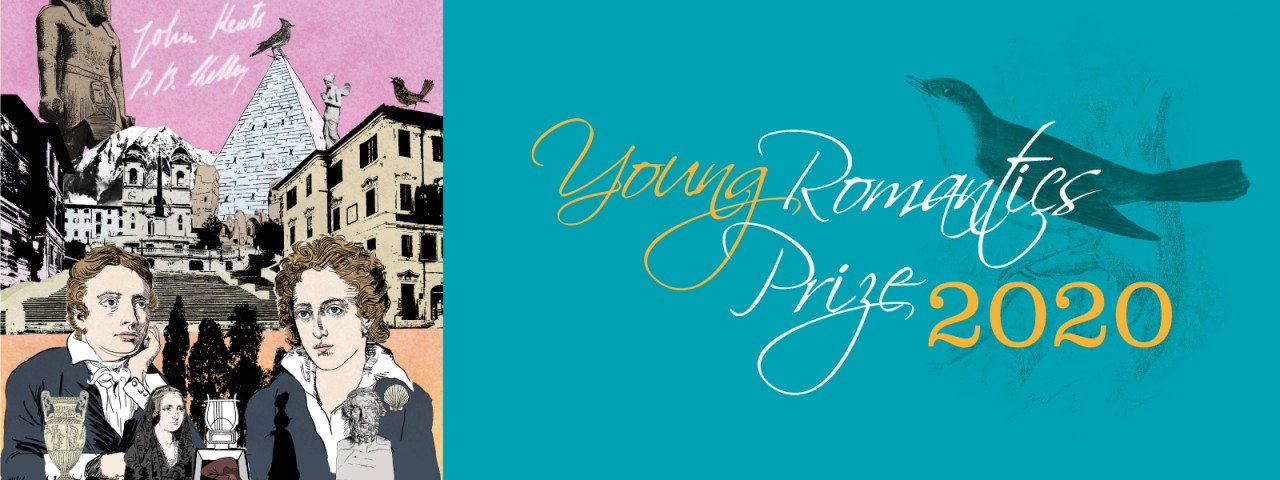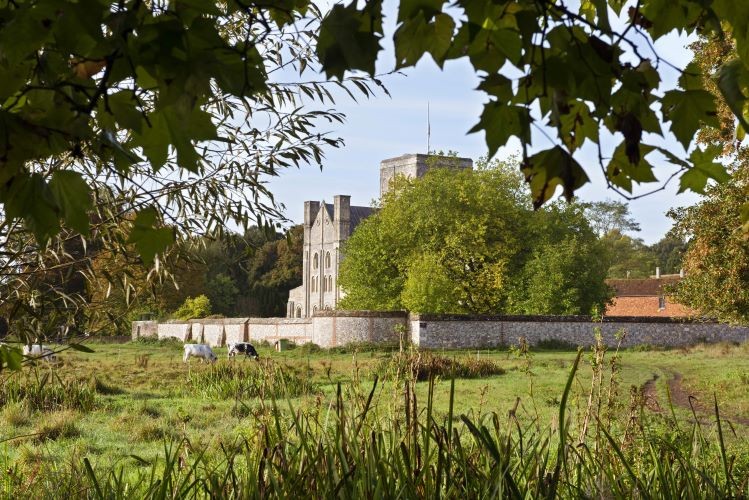2020’s Keats-Shelley and Young Romantics Prizes - Winners

The winners of 2020’s Keats-Shelley Writing Prizes were announced on 27th April by Guest Judge Simon Barnes.
In the absence of our usual Awards Ceremony, Simon Barnes delivered his verdicts online from his own back-yard and accompanied by a chorus of songbirds (and a pheasant). Watch below or by clicking here.
The Keats-Shelley Prize is now in its 23rd year. Five years ago, it was joined by the Young Romantics, whose entrants must be aged between 16 and 18. Both competitions are divided into two halves: poems and essays.
The glorious birdsong that accompanied Simon’s eloquent speech was an almost ‘too happy’ soundtrack for 2020’s Prize theme: Songbird. Inspired by two Keats-Shelley bi-centenaries – the composition 200 years ago of PB Shelley’s To a Skylark and the publication in book form of John Keats’ Ode to a Nightingale – ‘Songbird’ was the challenge set before our poets.
Our enthusiasm for wider artistic efforts to bring attention to ever-escalating climate crisis inspired this question for the Young Romantic essayists: ‘How can the poetry of PB Shelley and/or John Keats help us in our current climate crisis?’ Essays in the main Keats-Shelley Prize can be on any aspect of the lives and works of the Romantics.

The Keats-Shelley Poetry Prize was won by Pascale Petit for Indian Paradise Flycatcher.
Runners-up: Jill Sharp, for Cemetery Crow; Emma Simon, for The Visitors
The Keats-Shelley Essay Prize was won by Rosie Whitcombe for ‘Connection, Consolation, and the Power of Distance in the Letters of John Keats’.
Runners-up: Sarah Doyle, ‘Four Seasons fill the measure of the year: Romantic Meteorology’; Andrej Gregus, ‘Sublimity in the poetry of William Wordsworth and Percy Bysshe Shelley’.
Read all the shortlisted works here.
Listen to Keats-Shelley Poetry Judge Will Kemp read Indian Paradise Flycatcher below or by clicking here.

The Young Romantics Poetry Prize was won by Joyce Chen for Senbazuru.
Runners-up: Maya Stokes for Promise of Angels; Brigitta McKeever for Mockingbird.
Esther Laird won the Young Romantics Essay Prize with ‘Can Shelley save the world?’
Runners-up: Clementine Read with ‘Romantic Imperative: Shelley, Keats and a call to action’ by; Jenny O’Gorman with ‘Where are the Songs of Spring?’
Read the shortlisted entries here.
Listen to Joyce Chen’s Senbazuru read by Dinah Roe below or by clicking here.
Illness prevented Deryn Rees-Jones from recording her reading. We send her our very best wishes for a speedy recovery. We are immensely grateful to Dinah Roe for stepping into Deryn’s shoes at the last second. As well as curating an exhibition at Keats-Shelley House, Dinah has edited Penguin Classics’ Selected Poems of Christina Rossetti and The Pre-Raphaelites: From Rossetti to Ruskin. You can hear her podcast live-reading Christina Rossetti’s literary-spiritual diary here.
Keats-Shelley Prize Judges
The Keats-Shelley Prize Judges are Professors Sharon Ruston and Simon Bainbridge, who judge the essays, and the poets Will Kemp and Professor Deryn Rees-Jones.
Asked for their thoughts on this year’s poems, Will and Deryn began by congratulation all the entrants. ‘All those who entered this year’s prize deserve huge credit for responding so well to the worthy but tough theme of ‘Songbird’. The poems that impressed most tended to be those, which through original imagery and a complex handling of ideas, said important things about the relationship between the human and non-human world. This was done with an admirable lightness of touch.’
Turning to the individual poems, Will and Deryn praised the ‘elegant form and distinctive imagery’ of Pascale Petit’s Prize-Winning poem Indian Paradise Flycatcher, describing it as: ‘a contemporary ode that doesn’t put a foot wrong from start to finish. The poem offers a ‘subtle comment on the fragility and resilience of the natural world against a backdrop of the impacts of climate change.’
Combining ‘fine observation and well-handled form’, Emma Simon’s The Visitors ‘creates and sustains a sense of awe and wonder at the sight and sound of geese in long-distance flight.’ Jill Sharp’s Cemetery Crow is ‘a tautly-written poem’, whose ‘disorienting images and phrases’ tinged by cynicism observe the human world, both living and dead.
Joyce Chen who won the Young Romantics Prize with Senbazuru crafted an ‘economical and enigmatic poem with an apt lightness and effective imagery that takes a risk in terms of meaning but manages to pull it off with aplomb.’ ‘Ambitious, well-structured,’ Promise of Angels by Maya Stokes strives for ‘original, distinctive images that engage the reader and sustain interest right to the end.’ Mockingbird by Brigitta McKeever is ‘a bold poem’ that combines ‘observation and imagination to take on the voice of a mockingbird in an original, meaningful narrative.’
Turning to the Essay Competition, Professors Ruston and Bainbridge said: ‘We loved the Young Romantics essays. We thought the topic really spoke to this age range and there were some wonderfully passionate responses to the theme. Overall, the standard was very good, and some really great connections were made between Shelley’s and Keats’ political, philosophical and poetic demands and today’s climate crisis.’
The Keats-Shelley Essay Prize elicited ‘some very clever and pretty advanced pieces of work. Interesting to see the focus and the style, which felt quite philosophical – maybe a result of the suggested topic. All three felt like essays that could be read by a non-academic audience.’
All the past winners of the Keats-Shelley and Young Romantics Prizes can be seen on our Prize pages, where you can also read all the winning poems.
Congratulations to the winners, the shortlisters and everyone who entered 2020’s Prize. We hope to celebrate with our brilliant poets and essayists when circumstances are safer and happier for all.
Enormous thanks to all five of our Judges: to Simon Barnes, to Will Kemp and Professor Deryn Rees-Jones, and to Professors Sharon Ruston and Simon Bainbridge. We would also like to express our gratitude to our generous sponsors. The Headley Trust, the PF Charitable Trust, The Golsoncott Foundation, the D’Oyly Carte Charitable Trust, the John S Cohen Charitable Trust and the Sheila Birkenhead Fund.
As KSMA Chairman Sir Ivor Roberts noted in his introduction, preparations for 2021’s Keats-Shelley and Young Romantics Prize are underway. Keep an eye on our website for further details in the coming weeks.
James Kidd
Recent News
Julian Sands (1958-2023)
A tribute to the much-loved actor and supporter of the Keats-Shelley House
Ella Kilgallon is the New Curator of Keats-Shelley House
Dr Kilgallon will take up the post in February 2023
Keats-Shelley and Young Romantics Prizes 2022 Winners Announcement
17th October, 6pm: Fiona Sampson will reveal the winners on our website
Keats-Shelley Prizes 2022 - Shortlists
Read the Shortlisted Poems and Essays in 2022's Keats-Shelley and Young Romantics Prizes
Message from the Chairman of the Keats-Shelley Memorial Association to King Charles III
A Grecian Urn for the 21st Century
Specially commissioned by The Institute for Digital Archaeology
Fiona Sampson To Judge 2022’s Keats-Shelley Prizes
The award-winning poet, biographer of Mary Shelley and editor chairs our judging panels
Keats-Shelley and Young Romantics Prizes 2021: Winners
Watch Simon Barnes announce 2021's winning poems and essays

Keats-Shelley 200: Winchester Water Meadows ‘To Autumn' Walk
KSMA hosts a glorious walk that followed in the footsteps of John Keats